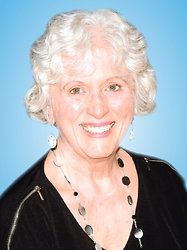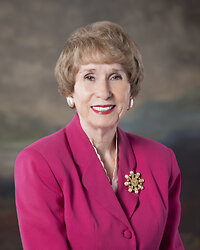Part 3
Those who care for us confront our disease in several different ways. We know they are trying to be supportive and helpful, but not all their approaches are helpful.

One approach is by the Be Positive. He tries to encourage us by saying such things as, "You are going to be just fine. Don't worry. Just think positive and everything will be okay." While it is important to be positive, there are two problems with this approach. One is that he doesn't know that everything will work out and he is telling us to only talk about our "positive" feelings. We are not to share such feelings as our frustrations and our anger. It is important to give voice to our "negative" feelings in order to deal with our illness.
Some people who have a difficult time accepting that we are ill become Bossy. They bark out orders and tell us what we should be doing. They become very controlling and may even treat us like we are not capable of making decisions or handling our affairs. Perhaps they are having a problem dealing with their fears.
One of the more difficult approaches is the "I had it worse" person. After hearing what we have to say, this person tells us all the horrors they had or heard about people who had the same illness or operation. Our pain is not nearly as bad as theirs.
Then there is the Detective, who focuses on "the problem" instead on us, the patient. They try to find cures and ask all kinds of questions about our disease. They make suggestions as to what treatments we should have from their research.
Another difficult approach that we may experience is the Fader. She talks like she will be there for us, but distances herself from us. She has one excuse after another as to why she cannot be there for us. It is difficult enough to deal with the disease, let alone friends who distance themselves.
Then there is the Angry One who is angry with our being ill. We get the message that it is not okay that we are sick. So, we find ourselves answering "Fine" when they ask us, "How are you doing?" To avoid talking about our illness, we may put on our "normal mask" and pretend everything is okay.
Next month we will explore ways of handling these approaches and ways to take care of ourselves. For now, a couple of things we can do is to let friends and family know what we are capable of doing and what we cannot do. Tell them when they are helping and be honest when things are better and when they are not.
Dr. William E. Austin is a licensed psychotherapist and holds a Doctor of Divinity degree. He is a therapist with Tidewater Pastoral Counseling Services . He is well known for his warmth and sense of humor. His book, Creating Our Safe Place - Articles on Healthy Relationships, can be purchased through www.amazon.com.
Tidewater Pastoral Counseling: 623-2700
CURRENT COLUMNS
Publisher’s Point 
Time To Moveby Jean Loxley-BarnardChildren First 
Dandelion Timeby Becky AdamsOn The Front Porch With You 
Memories of Homeby Rob LauerRelationships 
When Your Security Blanket is in the Dryerby Dr. Bill Austin
